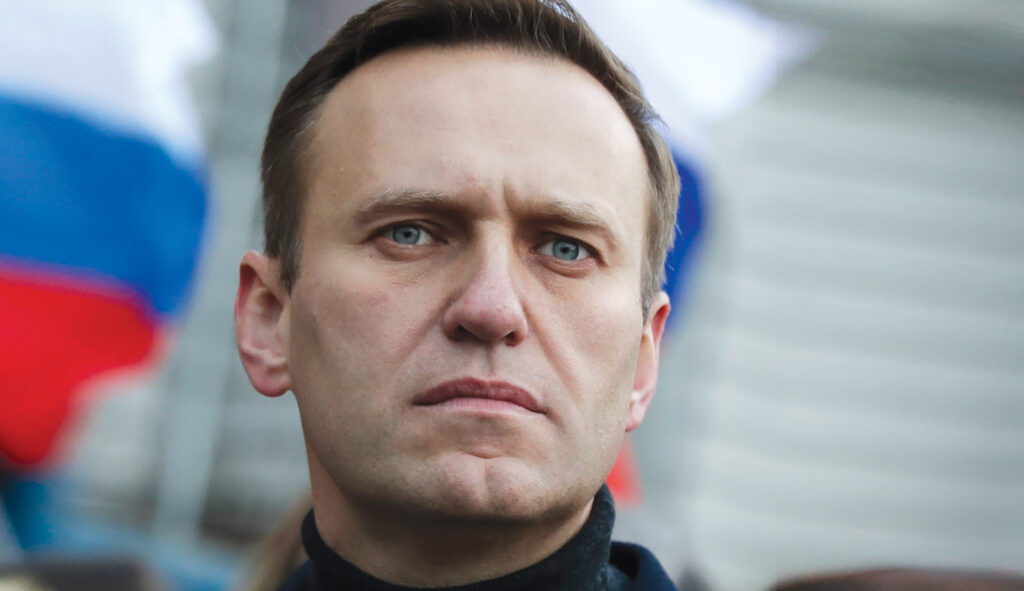For a brief moment in the late 1990s and early 2000s, it looked as if Russia was on the road toward becoming a free and democratic society. Boris Yeltsin was palling around with Bill Clinton, and George W. Bush took such a liking to Vladimir Putin that he declared that he had looked into Putin’s eyes and saw his soul. The feeling appeared to be mutual. After 9/11, Putin pledged his support to President Bush and stated that he stood with the United States.
Putin’s tenor, however, began to change over the next several years. The Russian president began lacing his speeches abroad with sharp anti-Western and anti-U.S. rhetoric while harshly clamping down on dissent at home. During these years, Putin also launched a series of invasions around Europe and Central Asia: Georgia in 2008, Crimea in 2014, and, almost two years ago exactly, Ukraine. The death of Alexei Navalny, Putin’s most outspoken critic, in an Arctic Circle penal colony this past week is a chilling nadir for this repressive era in Russian history, and — as a death that there is “no doubt” that Putin is responsible for, according to the current U.S. president — stands as one of the worst of the Russian president’s ever-expanding catalog of international and domestic crimes.

Putin’s latest victim may also have been his most famous. Navalny, a Russian lawyer, rose to prominence in the 2010s with his scathing critiques of Putin and exposés of the immense degree of corruption in Putin’s government. He was born on June 4, 1976, in Butyn’, a small village in the vicinity of Moscow, and was raised in the Moscow area as well as in Ukraine, where his father’s Ukrainian family maintained property near Chernobyl. Navalny received an early lesson in Russian governmental repression tactics when he witnessed how the Soviet government attempted to cover up the effects of the 1986 nuclear power plant meltdown that had affected his grandparents as well as millions of others in the surrounding area.
After Navalny earned a law degree from the People’s Friendship University of Russia in 1998, he practiced law in Moscow for several years while also studying for a degree in economics, which he received in 2001. At about the same time, Navalny was also becoming active in Russian politics. He joined the liberal democratic Yabloko party in 2001 but was cast out from the party in 2007, allegedly as a result of his participation in far-right gatherings. In no way did this setback dampen his resolve to be involved in state affairs. Over the next several years, Navalny began to publish his exposés of Russian state corruption and embezzlement schemes in widely circulated blog posts, limning Putin’s United Russia party as the “party of crooks and thieves.”
From 2011 onwards, Navalny became the target of a series of seemingly never-ending police raids, trials, jailings, and governmental investigations that most observers agreed were politically motivated efforts to censor and delegitimize him. Navalny, though, would not be silenced. He ran for the Moscow mayoral seat in 2013, finishing second, and in 2016 announced his candidacy for the 2018 presidential election. The Russian legal system, perhaps at the behest of Putin, went to work again on Navalny, orchestrating a series of legal challenges against him that resulted in the charismatic Putin opponent being barred from running. In response, Navalny called for the election to be boycotted.
After surviving a chemical attack that left him nearly completely blind in one eye, Navalny endured a further round of physical assaults when, in August 2020, he was poisoned while on a flight from Siberia to Moscow. Without an emergency landing that allowed him to receive life-saving treatment in a nearby hospital, Navalny would almost surely have died during the flight. Navalny spent several months in Germany recuperating from the attack but could not resist the urge to return to his homeland, even though he knew that going back to Russia would almost surely entail sacrificing his freedom, if not also his life.
Indeed, immediately upon returning to Russia in January 2021, Navalny was arrested and shipped out to a penal colony in north-central Russia. Navalny survived a hunger strike, but he could not survive the brutal conditions of what is reportedly the harshest prison in the Russian penal system. Unable to become the Nelson Mandela of modern Russia during his life, in death, Navalny stands to become an even more potent catalyst for freedom for all Russians who yearn for liberty and democracy.
Daniel Ross Goodman is a Washington Examiner contributing writer and a postdoctoral fellow at Harvard Divinity School. His latest book, Soloveitchik’s Children: Irving Greenberg, David Hartman, Jonathan Sacks, and the Future of Jewish Theology in America, was published this summer by the University of Alabama Press.
